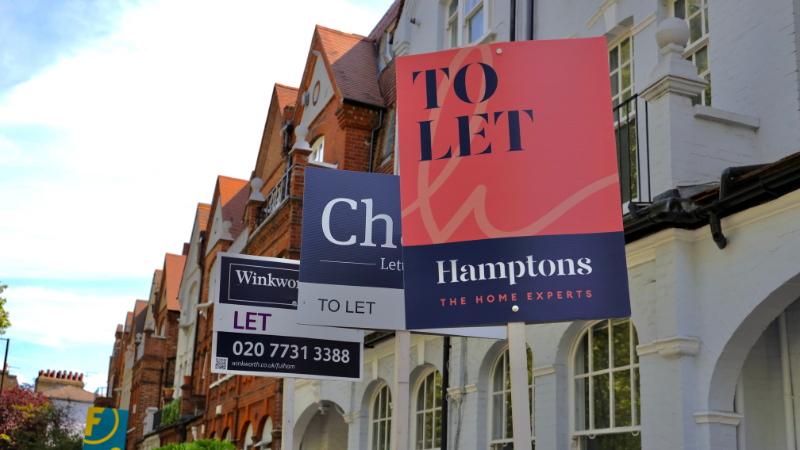Categories
Aged 70 Plus? How To Get A Mortgage

Taking on a new mortgage at the age of 75 (or 78, or 80…) might not be how you thought property ownership would look when you first bought a home 30 years ago or more.
But for most people retirement doesn’t look anything like it did 30, or even 20, years ago:
- We have many more opportunities to start new careers or new businesses throughout our working lives.
- We’re healthier and more active in later life, more adventurous, and we’re travelling more.
- Many more of us not only need to continue working into retirement, we want to continue enjoying new challengers.
- Plus the structures of families continues to change throughout our lives: "silver separators" and "silver splicers" are divorcing and marrying in their 50s, 60s and 70s.
All this means that there's far more that we want, and need, to do with ourmoney
Why do you need to refinance your home?
For all homeowners over the age of 60 or 70 considering the options of remortgaging, or borrowing against the value of their homes, the primary considerations will be ensuring you have sufficient income to fund you through your retirement years while being able to stay in your home for as long as you want to.

1 Homeowners currently on a low-cost interest-only mortgage which is coming to the end of its term need to find new finance to repay the capital sum owed on their homes, or face having to sell up.
2 Many of the people who took out interest-only mortgages were encouraged to take out endowment policies which would repay the capital at the end of their mortgage term. But many of those endowment policies have massively underperformed.
3 Retirees who don’t have sufficient funds in their savings and pensions to fund their retirement are not alone in needing to release some of the value locked up in their homes.
4 Property owners with capital repayment mortgages who’ve built up a substantial amount of equity in their homes, or who have paid off their mortgages altogether, are the classic "assets rich, cash poor" homeowners.

You may want to access that equity without selling your home, in order to pay for:
- home improvements
- purchase an investment property
- help younger family members to buy property
- pay for grandchildren’s school fees
- pay for adventurous travel, or a holiday property
What kind of home refinance will suit you?
The key criteria is whether your retirement income will support mortgage payments into the future.
For a couple this includes careful consideration of your future financial situation if one or other of you dies. It’s advisable to make this assessment with the help of an experienced and thoughtful financial adviser.
If you will have sufficient income to support mortgage payments, and you find yourself needing to remortgage, or take out a new mortgage, an option now available to older borrowers, which keeps your monthly payments to a minimum, is a Retirement Interest Only (RIO) mortgage.
If you’re one of the many Britons whose retirement income isn’t going to cover their needs, you’ll be looking at some type of equity release scheme that lets you access the value built up in your home without having to sell it.

Do I need a Retirement Interest Only (RIO) mortgage?
It used to be very difficult to get a mortgage offer if your repayments would continue past retirement age.
If you took out 25-year capital repayment mortgages in your 20s or 30s, it was assumed you’d be mortgage-free in a home you owned outright before you reached retirement around the age of 65.
- For home buyers who were encouraged to take out low-cost interest-only mortgages during a property boom, it was assumed that property prices would keep rising. So that when they came to the end of their interest-only mortgage terms the increase in value of their home would allow them to sell up and repay the capital, and have enough left over to buy another home.
- They might have been encouraged to take out an endowment policy at the same time as their mortgage, with the aim that it could be used to pay off the capital of the mortgage at the end of term.

But the slackening in house prices, and the massive underperformance of endowment policies, led the FCA to look for ways of helping particularly older borrowers who needed to repay their interest-only mortgages that are coming to an end.
This has also freed up the market for older people who might want to take out a mortgage to upsize and buy a home they can share with younger family, or a variety of other reasons.
From mid-2018 the FCA eased the regulatory restrictions on mortgages for older borrowers, allowing:
- Mortgages extending up to the age of 99
- Loans repaid when the mortgage holder dies, sells their house or moves into long-term care
- Interest only paid each month = lower monthly repayments
Should I take out equity release on my home?
There are two main types of equity release: "lifetime mortgages" and "home reversion plans".
All equity release products can affect your tax status, and your entitlement to state benefits: you should talk to an independent, professional advisor before taking any of these decisions.

1 Lifetime mortgage
This is a mortgage secured against your home which gives you cash back from the value of your property.
The interest compounds over time, unless you choose to service it, which does make serious inroads into the value of your home, leaving you less when you come to sell, or to leave as an inheritance.
You can choose to have cash you access paid as one lump sum, or a series of payouts, or regular income:
- Lump sum lifetime mortgages
- Interest-serviced lifetime mortgages
- Drawdown lifetime mortgages
2 Home reversion plan
This involves selling all or part of your home in return for a cash lump sum.
The amount of money you can access is usually more than you would get from a lifetime mortgage payout. It’s calculated by the home reversion plan provider depending on how long they expect the plan to run. (Basically, how long they expect you to live – or to live independently.)
All or part of your home will now belong to someone else – though you can remain living there for the rest of your life rent-free (or until you move into long-term care).

This isn’t a loan, so there’s no interest to pay. But if your home increases in value you don’t benefit, unless you’ve retained a share of your home, in which case you’ll only gain that percentage of the price increase.
And the amount you can leave as an inheritance (or sell to pay for care home costs) will depend on the percentage of ownership you decide to retain.
How does the cost of an RIO mortgage compare with equity release?
Which? magazine has run the numbers as an example.
Remember, this will look very different if you’re paying interest for longer, or your house doesn’t increase as much in value, or you’re paying a higher interest rate. But say:
- You own a property worth £200,000
- You want to borrow 50% of this = a loan of £100,000
- The interest rate is 5%
- In 15 years' time you need to sell your house and go into a care home
- Your home is now worth £300,000
Equity release ("lifetime mortgage")
- Your monthly repayments: £0
- Total amount you owe after 15 years: £211,370
- How much is left after repaying the loan: £88,630
Retirement-interest only
- Your monthly repayments: £417
- Total amount you owe after 15 years: £100,000
- How much is left after repaying the loan: £200,000
- Total amount of interest paid: £75,055
Before-you-decide checklist
Talk to us about your borrowing options
Refinancing your home is a hugely important issue that can decide the opportunities available to you, and your peace of mind in retirement.
You need professional, impartial information about the range of options available, and how they could work for you – both now, and as circumstances might change.
Contact Clifton Private Finance for a first no-fee discussion of the kind of help you’re looking for:
0117 959 5094
More about our mortgage service
And if you've found this blog useful, please do pass it on...















